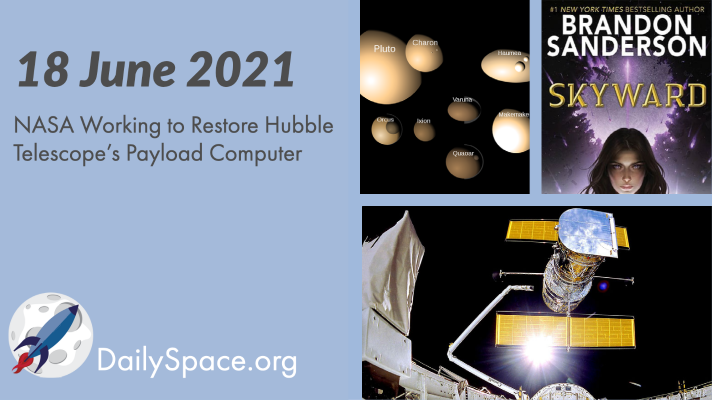
Jun 19, 2021 | Daily Space, Dark Matter, Exoplanets, Galaxies, KBOs, Spacecraft, Stars
The payload computer aboard the Hubble Space Telescope stopped running on Sunday, June 13, 2021, and now the operations team is working to either save the module or switch to a backup. Plus, a protoplanetary disk, stellar mega-flares, missing dark matter, trans-Neptunian objects, and a review of Brandon Sanderson’s novel Skyward.
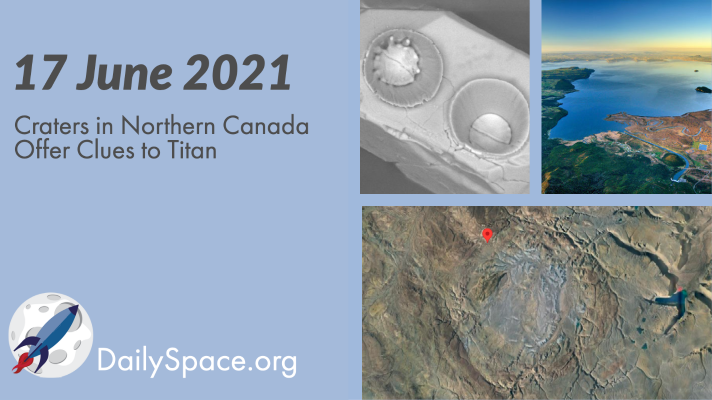
Jun 18, 2021 | Daily Space, Dark Matter, Earth, Galaxies, Milky Way, Stars, Titan
New research presented at the Workshop on Terrestrial Analogs for Planetary Exploration used the Haughton impact crater in Arctic Canada as a potential analog for impact craters on Titan, one of the targets of the upcoming Dragonfly mission. Plus, giant spinning structures, the slowing of the Milky Way, a blinking star, and volcanoes here on Earth.
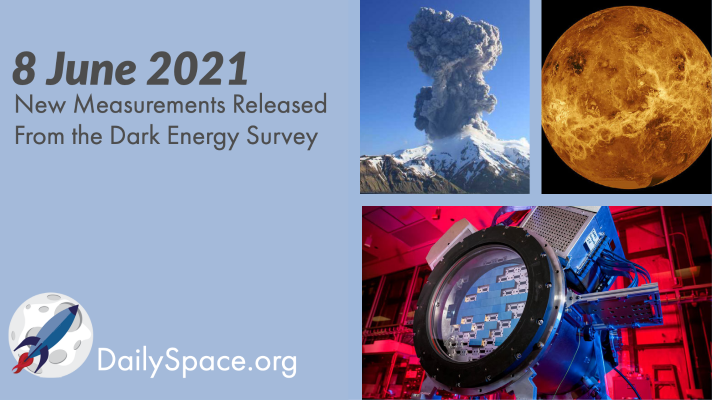
Jun 9, 2021 | AAS, Daily Space, Dark Matter, Earth, ESA, Galaxies, Jupiter, Mars, Nebulae, Spacecraft, Star Forming Region, Stars, Venus, White Dwarfs
The most precise measurements of the universe’s composition and growth have been reported in almost thirty new papers based on Dark Energy Survey observations of 229 million galaxies and covering one-eighth of the sky. Plus, stories from the first day of the AAS conference, all the volcanoes, and mission updates.
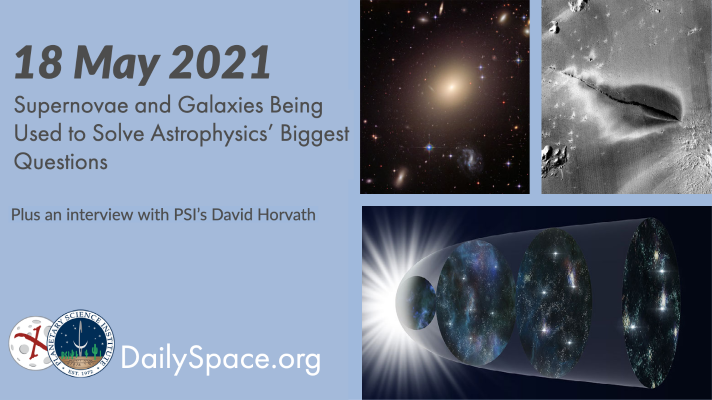
May 19, 2021 | Black Holes (Stellar), Daily Space, Dark Matter, Galaxies, Gemini North, Guest Interview, Mars, Neptune, Physics, Stars, Supermassive Black Holes, Uranus
Two new studies are attempting to solve a couple of big puzzles in astrophysics: Is the Hubble constant actually constant? And why do galaxies have flat rotation curves? Plus, a young star’s circumstellar disk, the search for stellar-mass black holes, magnesium in the deep waters of Neptune and Uranus, and an interview with PSI scientist David Horvath regarding possibly active volcanism on Mars.
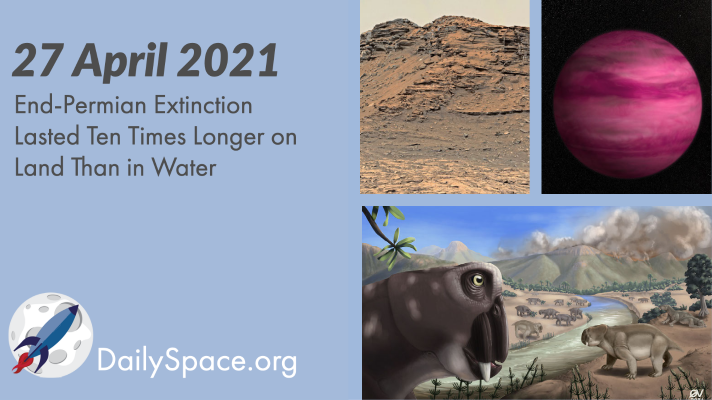
Apr 29, 2021 | Astrobiology, Climate Change, Cosmology, Curiosity, Daily Space, Dark Matter, Earth, Mars, Moon, Space History, Stars, Supermassive Black Holes
The biggest mass extinction event on Earth occurred at the end of the Permian period, resulting in the extinction of 95% of marine life and 80% of terrestrial life. Now, scientists have found that the terrestrial portion of the event lasted nearly ten times as long as the ocean version. Plus, a spaghettified star, the search for Moon Trees, all about Mars, and new works on dark matter and dark energy.
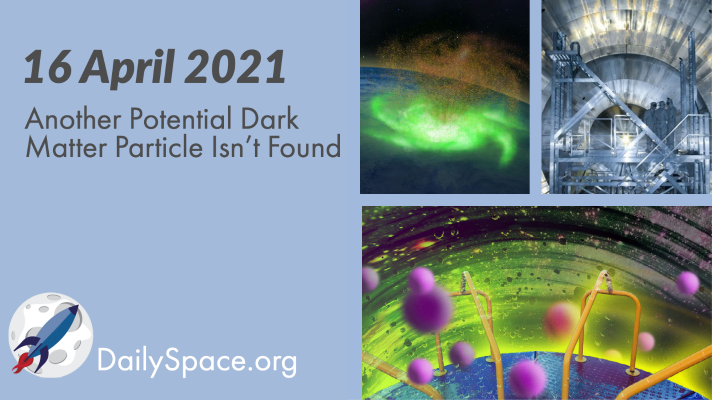
Apr 20, 2021 | Cosmology, Dark Matter, Earth, Galaxies, Physics, Supermassive Black Holes
Researchers looked for a slowdown in black hole rotational speeds due to the collection of ultralight bosons, but they found nothing, eliminating the hypothetical particle from the list of possible dark matter particles. Plus, neutrino hunting, neutron stars, a space hurricane, and our review of some delightfully nerdy apparel.








 We record most shows live, on Twitch. Follow us today to get alerts when we go live.
We record most shows live, on Twitch. Follow us today to get alerts when we go live.